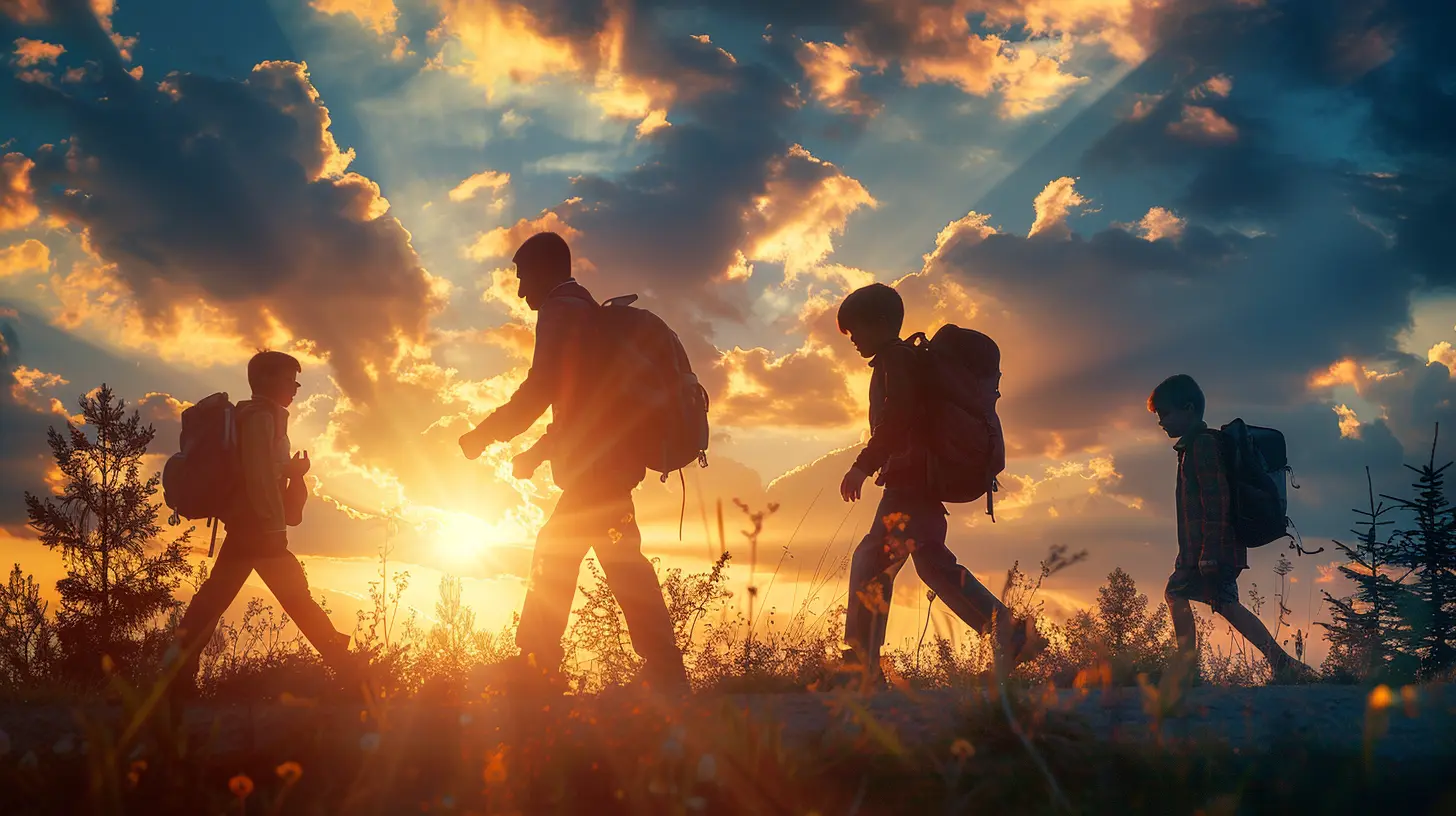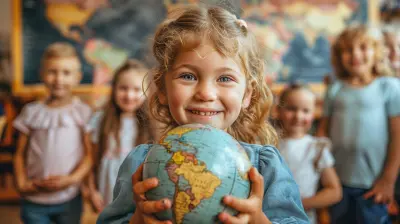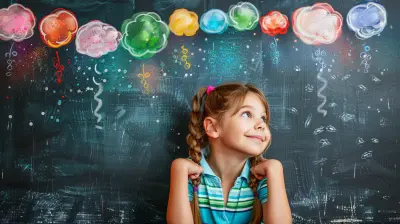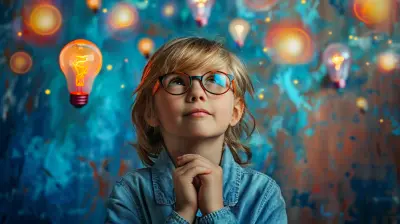Lifelong Learning as a Tool for Social Change
7 July 2025
Let’s face it—our world is changing faster than ever. New technologies, shifting economies, evolving social structures... it's like we're all trying to stay on a moving train without falling off. But there’s a secret weapon that can help us keep up. Not just to survive, but to thrive—and maybe even change the world along the way.
That weapon? Lifelong learning.
It’s not just for personal growth anymore. Lifelong learning plays a massive role in shaping communities, transforming cultures, and driving social change. Let's dive into how continuous education isn’t just about self-improvement—it's a powerful tool that can influence society for the better.
What Exactly Is Lifelong Learning?
Before we get too deep, let’s define it. Lifelong learning is the ongoing, voluntary pursuit of knowledge—formally or informally—throughout one's life.Think beyond classrooms and textbooks. This could be anything from taking an online course, learning a new language, volunteering, picking up coding, joining a book club, or even having thought-provoking conversations at community events. The possibilities are endless.
It’s learning because you want to improve, because you’re curious. Not because someone handed out a syllabus.
Why Lifelong Learning Matters (Now More Than Ever)
Here’s the reality: jobs are changing, industries are evolving, and the skills that were essential 10 years ago are now obsolete in many fields. But beyond just keeping up with career trends, education has a deeper impact—it shapes mindsets, reduces ignorance, and connects people in powerful ways.Let’s break it down.
1. It Fosters Empathy and Understanding
When you learn about other cultures, histories, and social issues, you start to see the world differently. You become less judgmental, more understanding. And guess what? That’s the first step in fighting prejudice and discrimination.Ever noticed how exposure changes perspective? When people read about racial injustice, or listen to personal stories from refugee communities, they become more compassionate. Learning creates empathy—and empathy is the root of positive social change.
2. It Breaks the Cycle of Inequality
Not everyone gets the same start in life. Lifelong learning can be the great equalizer.By making learning accessible to everyone—regardless of age, income, or background—we empower individuals to break out of poverty, improve their communities, and carve out better futures. Think of it like planting seeds of opportunity across entire neighborhoods.
And here's the kicker: when one person lifts themselves up, they often bring others with them.
3. It Builds Active Citizens
Lifelong learners are curious, informed, and socially aware. They don’t just scroll past headlines—they dig deeper. They ask questions, challenge the status quo, and push for change. These are the people who vote, volunteer, organize, and mobilize.In short, lifelong education creates active citizens, not passive observers.
Real-World Examples of Learning Fueling Change
Let’s zoom in on a few ways where learning has sparked tangible impact.Community Education Programs
Local initiatives like adult literacy classes, financial literacy workshops, and parenting seminars help individuals gain essential skills that directly impact their daily lives. This, in turn, strengthens entire communities.For instance, financial literacy can empower families to rise above debt and plan for the future. Parenting workshops help raise healthier, emotionally secure kids. It’s a ripple effect.
Online Learning and Social Justice
Ever heard of someone watching a TED Talk or taking a Coursera course and having their worldview flipped? Yeah, that happens all the time.People all over the world are educating themselves about climate change, gender equality, and human rights—from their own homes. They’re then using that knowledge to push for sustainable policies, support marginalized groups, and take part in global conversations.
Grassroots Movements and Education
Many social movements—like civil rights campaigns, climate strikes, or women’s rights marches—are rooted in education. Not formal schooling, but the sharing of knowledge, history, and lived experiences.Education is what rallies people around a cause. It informs protests, fuels petitions, and makes social media campaigns so powerful.
The Role of Technology in Lifelong Learning
You don't need to enroll in a university or buy stacks of textbooks anymore. The Internet has changed the game.Learn Anything, Anywhere
YouTube tutorials, online courses, podcasts, eBooks—you name it. Knowledge is literally at our fingertips. This accessibility means that more people, in more places, can become part of the learning revolution.Even people in remote areas—those who were left out before—can now tune in and level up.
Building Online Learning Communities
Learning doesn’t have to be a solo journey. Facebook groups, Reddit threads, online forums, and digital classrooms have become vibrant spaces for exchange.People from entirely different backgrounds are coming together to share ideas, challenge each other’s assumptions, and collaborate.
And that kind of connection? That’s social change in motion.
Barriers to Lifelong Learning (And How to Knock Them Down)
Of course, it’s not all sunshine and rainbows. Not everyone has equal access to resources. Let’s talk about what's holding people back—and how we might fix that.1. Lack of Time
Between work, family, and other responsibilities, finding time to learn feels impossible. The fix? Flexible formats.Micro-learning—short, on-the-go lessons—and mobile apps offer bite-sized education that fits into even the busiest schedules. A 10-minute podcast during your commute can be more powerful than you think.
2. Financial Constraints
Formal education can be expensive, sure. But thanks to scholarships, low-cost online courses, and open-access materials, learning doesn’t have to break the bank.Public libraries, nonprofit organizations, and community centers also offer free resources. We just need to spread the word.
3. Digital Divide
Here’s the hard truth: not everyone has access to internet or devices.We need investment in digital infrastructure and public access to tech. Governments and businesses alike have a role to play here. Because without access, people get left behind. And that’s the opposite of social change.
How You (Yes, You!) Can Promote Lifelong Learning
Still with me? Good. Because we’re not just talking theories here. You have a role in this too.Model It
Be a role model. Talk about the books you’re reading, share cool videos or articles, show your kids or peers that learning doesn’t have an expiration date.Support Learning Programs
Donate to or volunteer for education-based nonprofits. Help run a workshop. Start a reading group in your area. Even small actions can spark big changes.Use Your Voice
Raise awareness. If your workplace doesn’t support upskilling, speak up. Advocate for better access to learning in your community.And if you see someone struggling to keep up? Help them out. Share resources, recommend tools, or just offer encouragement.
Lifelong Learning Changes the World—One Mind at a Time
Here’s the bottom line: when we learn, we grow. When we grow, we change. And change isn’t just personal—it’s collective.From understanding social justice issues to gaining the skills to run for local office, learning gives us the tools to shape the future. It empowers individuals, strengthens communities, and fuels movements.
So pick up that book. Sign up for that course. Ask the hard questions. Keep that curiosity burning.
Because lifelong learning isn't just a path to knowledge—it's a highway to progress.
Final Thoughts
In a world that often feels divided and overwhelmed, lifelong learning is one of the greatest tools we have to come together, rise up, and create a society that works for everyone. It’s not just about being good at trivia or getting a promotion—it's about building a better world, from the ground up.So, what will you learn next?
all images in this post were generated using AI tools
Category:
Lifelong LearningAuthor:

Olivia Lewis
Discussion
rate this article
1 comments
Erin Underwood
This article beautifully highlights the transformative power of lifelong learning in driving social change. By equipping individuals with essential skills and knowledge, we can foster inclusive communities and empower people to challenge inequalities. Education truly is a catalyst for progress.
July 22, 2025 at 12:00 PM

Olivia Lewis
Thank you for your thoughtful comment! I'm glad you found the article inspiring and resonant with the importance of lifelong learning in driving social change.


